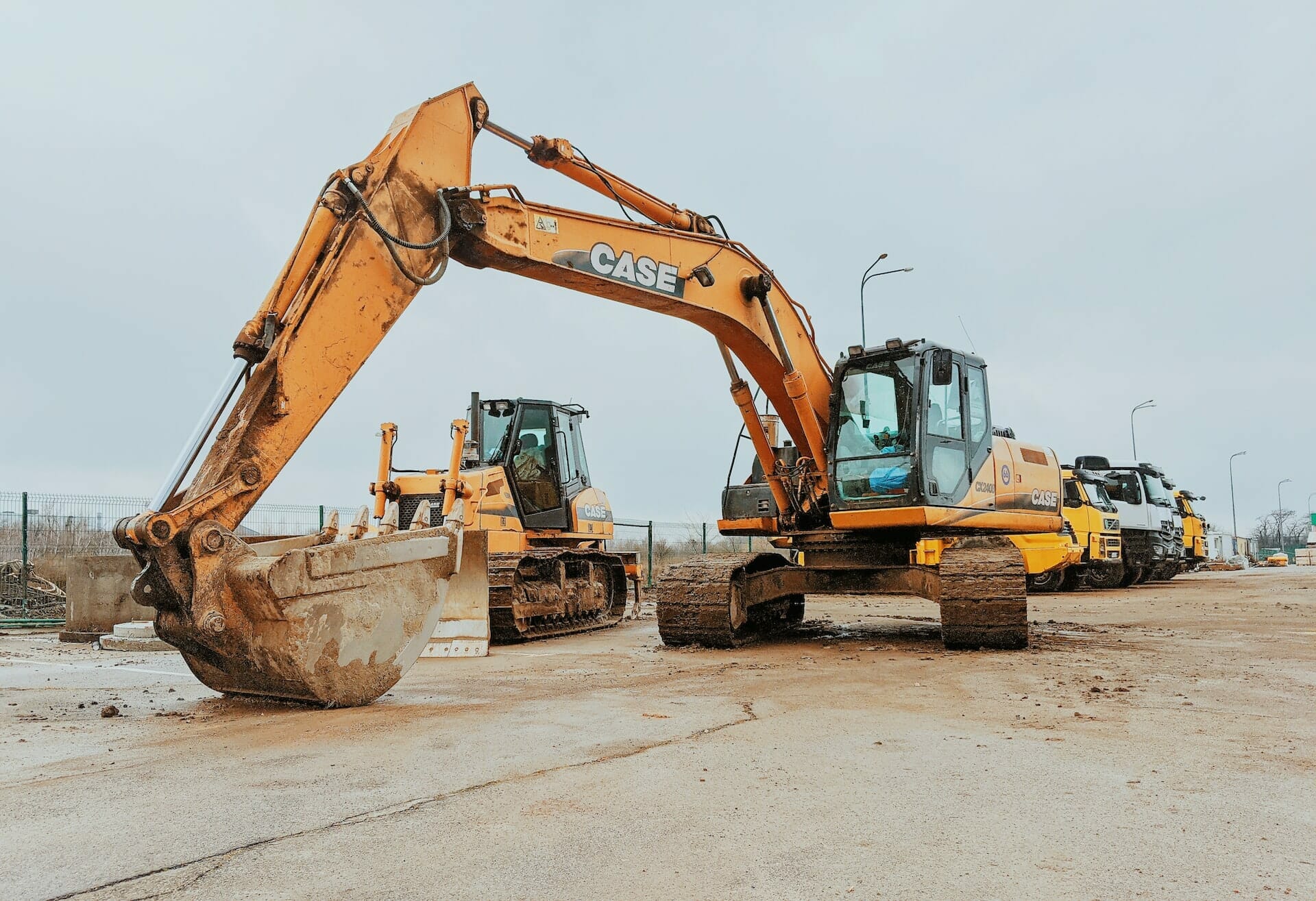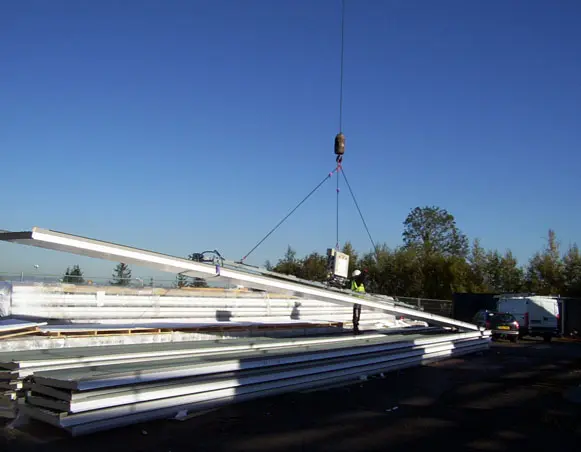
In recent years, renting has almost become a culture in the UK. No matter which industry you look at, renting has completely taken off and shows no signs of slowing down any time soon. Whether we look into the housing market or the construction industry, renting is becoming an ever-more prominent prospect that is increasingly appealing to people as time goes on.
As renting continues to sweep the nation and grow into the social norm, the construction industry has now been caught by renting fever. Many companies across the UK are now renting more equipment than they are buying. But why is this?
In this article, we will explore the main factors leading to more companies renting equipment. We will look into whether this will continue or grow into the future and determine which equipment you should rent compared to which equipment you should be buying.
What has caused rent culture in construction?
Renting has sped up dramatically in the last 5 to 10 years, with thousands of companies renting more equipment for jobs than they own. Many factors will weigh into this, and we will go through each individually.
-
Space
As jobs become more significant and the equipment becomes larger and more industrial, it can be tough to find the space to keep all equipment for all types of jobs. This will affect all companies in a growing fashion. As smaller companies do not have a lot of space regardless, it will not take much to leave their current premises overwhelmed when purchasing and keeping equipment for all job types. Although it is possible, it takes up space that may be needed for other purposes further down the line.
By renting the necessary equipment needed for particular jobs at the time, businesses provide themselves with all of the essential equipment they need for specific jobs while not sacrificing the space they currently have. This makes a lot of sense for smaller businesses as it allows the limited space they have to be available for more important matters.
This will be comparatively similar for larger businesses but on a larger scale. Another major issue that large-scale companies may be looking to overcome through renting ties in a lot with our next point, surging rent prices among commercial buildings.
-
Rising prices for commercial property
As we leave a world where COVID-19 dominated all of our lives for two years, we now begin to feel the financial repercussions of the Furlough scheme. We also start to feel the effects of the lack of construction business that COVID brought along with it. Now, we see housing and commercial property prices soaring in an attempt by landlords to make back some of their losses from the past two years.
While this is unavoidable, it damages businesses in the construction industry. As these businesses begin to recover from the damaging effects that COVID had and begin to take on business again, the need for specialist equipment is becoming increasingly important.
While all the equipment is necessary for the businesses’ jobs, some companies can’t afford to acquire the required space for all the essential equipment. So what is the answer to this impossible problem? The answer is renting the equipment.
By renting this equipment, companies get the best of both worlds. Not only are they able to have all the tools necessary for a job at hand, but they also do not need to acquire excessive amounts of property. This prevents them from potentially placing their business at financial risk.
-
Maintenance Costs
As well as saving some of the costs from renting a larger space, businesses can save a significant amount of money by not having to carry out maintenance work on tools and equipment. If devices are rented, it is the responsibility of the rental company to keep equipment in good condition for other customers. By using rented equipment, a business can guarantee that the tools and equipment they use have passed all necessary checks and are in line with health and safety regulations.
The knock-on effect is that the business no longer has to worry about the reliability of some of its equipment. Instead, having the peace of mind that all equipment is ready to use and in an excellent condition when it is ready to use. However, it is still important to note that all equipment rented by a company should still be inspected, especially in this case.
As the equipment is being rented, carrying out equipment checks as the rentee ensures all equipment is up to standard. This allows you to inspect the equipment for any damage before use. Using equipment without inspection for damage first could mean you have to pay for any equipment damage that has not already been noted. It is always important to carry out an extra look over the equipment rented.
-
Environmental compliance
As emissions and pollution regulations continue to become tighter, it can become time-consuming, stressful and costly to ensure that your equipment and machinery stay within environmental regulations constantly being looked at and enhanced. By renting your equipment, you can put that responsibility on the rental equipment supplier that you use, giving you one less thing to worry about.
It can be a nightmare from a financial point of view, as well as doing nothing for your stress levels. You remove these potential extra costs from your cash flow forecast by renting your equipment. This gives you a less stressful time when it comes to worrying about equipment.
-
No risk of excessive investment
Heavy-duty equipment is not easy to come by in the construction world as the price is so severe for specific pieces. With many companies within the construction industry being multi-layered and skilled in the modern construction industry, the need to use particular pieces of equipment consistently is dwindling.
Combining this with equipment becoming more advanced and expensive means that for some companies, purchasing this equipment without a specific return on investment forecasted is too much financial risk.
Considering this, we can see why renting equipment has become such a popular alternative to purchasing equipment. Without the risk that comes with such a significant investment, construction companies can hire what they need at a much lower rate, guaranteeing a return on investment with every individual use. Businesses can move their assets elsewhere to strengthen the company by doing this.
Renting: Mutually beneficial
Renting can hold some critical advantages for rentees, providing reliable equipment on a job-by-job basis. This keeps costs down and eliminates the financial risk that may come from lack of use, maintenance costs, or renting storage premises. However, it is not only the rentee who benefits from this arrangement.
The popularity of equipment hiring companies has surged in the last decade. One of the UK’s leading equipment hire companies saw its revenue rise to £300m through 2021, and this is due to many individual reasons.
-
The impact of COVID
Firstly, COVID has hit many construction companies seriously hard, with many going under over the past two years. Once COVID passed, those that survived were left in a seriously fragile state, and many have still not fully recovered. With the sheer lack of business resulting from Coronavirus, profit margins have not recovered to a rate which would see them able to purchase their equipment. Here is where the equipment hiring companies step in.
Equipment hiring companies have allowed construction companies to carry out their work without worrying about the high costs of purchasing and maintaining equipment. This mutually beneficial arrangement has helped to strengthen both sectors. It doesn’t look like an arrangement that’s slowing down as we transition to a post-pandemic world.
-
Cost of living crisis
As we move into a world without COVID, new challenges and serious issues that threaten the construction industry begins to rise. Going into 2022, the biggest challenge facing individuals and businesses alike is the current cost of living crisis. With prices for just about everything increasing gradually as the UK tries to recover some of the losses made through COVID, businesses and the public are suffering as a result.
As businesses begin to cope with the cost of living crisis, cutbacks become inevitable and assets that may have seemed necessary in the past, like owning light machinery, become surplus to requirements. Instead, the renting age continues to surge in an attempt by business owners to keep overheads lower and profit margins higher.
Equipment rental companies benefit from this trend. However, it is also important to consider that this increase in prices across the UK also means that maintenance costs for equipment are rising slowly but surely. While rental companies are making good profits now, they must also keep their overheads in mind. By doing this, they will retain the profit levels that are currently being seen.
What is the best equipment to rent?
We have established many vital advantages to renting your equipment in the current financial climate, but what exactly should you be renting? What should you be purchasing? Let’s look at the best rental equipment in the current economic climate.
-
Landscaping equipment
Heavy equipment like landscaping vehicles can be costly to purchase if you only use them occasionally (below 40% of the time spent on a job). If you are below this threshold, renting heavy-duty equipment like this can save you significant money.
These heavy vehicles take up a significant amount of space, requiring constant maintenance to keep them in good working order. For this reason, it is best to rent this equipment and eliminate these potential costs from your balance sheets.
If you are not using this equipment for the entirety of a job, we highly recommend that this is one of the areas that you look to rent.
-
Excavator vehicles
Similarly to landscaping equipment, excavation vehicles are space-consuming, expensive and require vast amounts of maintenance to keep them at optimal performance. With costs for this type of equipment being so high to purchase and maintain outright, it makes sense to hire them for the times they need to be used.
Again, make sure that you only do this if you are using this equipment less frequently and that it will be better for your business financially to rent rather than purchase this equipment.

-
Vacuum lifters
Vacuum lifters are a perfect example of high-quality, high-priced equipment that some companies do not use as commonly as others. It is, however, a handy tool that may be needed in certain circumstances. Hiring a vacuum lifter enables the user to gain all of the tool’s benefits while not having to worry about any maintenance or storage costs.
Renting this type of equipment is perfect when you rarely use it or only use it for a small period in your jobs. By doing this, you help yourself stretch out those profit margins through saving storage and maintenance costs, as well as the price of the tool.
If you’re looking for a vacuum lifter, we recommend you consider renting before deciding.

Conclusion
Renting culture is currently surging across the UK and is showing little to no signs of slowing down. While the cost of living and business expenses continue to increase, renting equipment offers at least a tiny bit of relief to construction companies’ already growing list of prices today.
Today, we face reality where there is no ceiling to the increasing costs, so finding these alternative ways of acquiring equipment is becoming increasingly popular. It will continue as long as prices continue to increase.
To find out more about renting equipment, or if you’d like to enquire about renting our state-of-the-art Vacuum Lifters, please don’t hesitate to get in touch with us. We are happy to talk you through the benefits of renting and how it could help you.